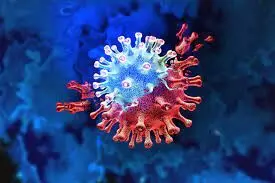
Omicron not lethal, can be tamed with booster dose: Initial study
text_fieldsThe initial studies on the Omicron variant of the Coronavirus give cautiously optimistic results, as they show that the variant causes a loss of immune protection but not a complete failure. Immunity can be jacked up with a booster dose of vaccines, Bloomberg reports.
On Wednesday, vaccine manufacturing partners Pfizer and BioNTech said that lab studies so far showed a 25-fold reduction in neutralising antibody levels versus Omicron, but a booster dose raised the antibody counts.
The data published by the duo showed results from a South African study of blood plasma from people jabbed with both shots of Pfizer-BioNTech, which inferred a 41-fold drop in levels of virus blocking antibodies against Omicron compared to the variant circulating during pandemic broke out.
German researchers from the Institute of Medical Virology at the University Clinic Frankfurt backed South African results as they found a 37-fold drop in antibodies against Omicron versus delta variant.
A separate study done in Stockholm gave an optimistic inference that the fall caused by Omicron is only slightly worse than Delta, the major variant in circulation now. The German study stated that samples taken from those who got both vaccine doses six months ago showed no neutralising antibodies, suggesting the need for booster shots.
Pfizer and BioNTech said they expect a robust response by the T Cells, the second line of human body defence, against Omicron.
Apart from the vaccine manufacturers, researchers are also optimistic and say that loss of immunity is not complete. Alex Sigal of Africa Health Research Institute in Durban opined that a good booster would decrease chances of infection, particularly severe ones.
Though the World Health Organisation (WHO) warned severe consequences regarding Omicron, reports from South Africa post the advent of the variant serve cautious optimism so far as there were no incidents of hospitals being overwhelming.
The levels of neutralising antibodies are a crucial marker of immunity. These antibodies induced by vaccines or infections naturally decline in months, but data shows that the human body is able to make more effective antibodies.
Now, an important thing scientists are trying to address is whether existing Covid-19 vaccines need to be altered to fight against Omicron. The magnitude of the drop of neutralising antibodies against Omicron does indicate the need for Omicron-targeted vaccines, virologist Stephen Goldstein of the University of Utah in Salt Lake City said.
Pfizer and BioNTech announced that such a vaccine would be ready by March. But any alteration to shots should be given careful consideration as Delta is still high in circulation, and existing vaccines provide sufficient shield against it, Ana-Maria Henao-Restrepo of WHO said.
At the same time, Alex Sigal's lab collected samples of people shot with a second Pfizer dose a month earlier and found that levels of neutralising antibodies against Omicron were significantly higher in a subset of participates who had a bout of Covid about a year earlier. The result suggests that vaccination or prior infection provides some amount of protection.






